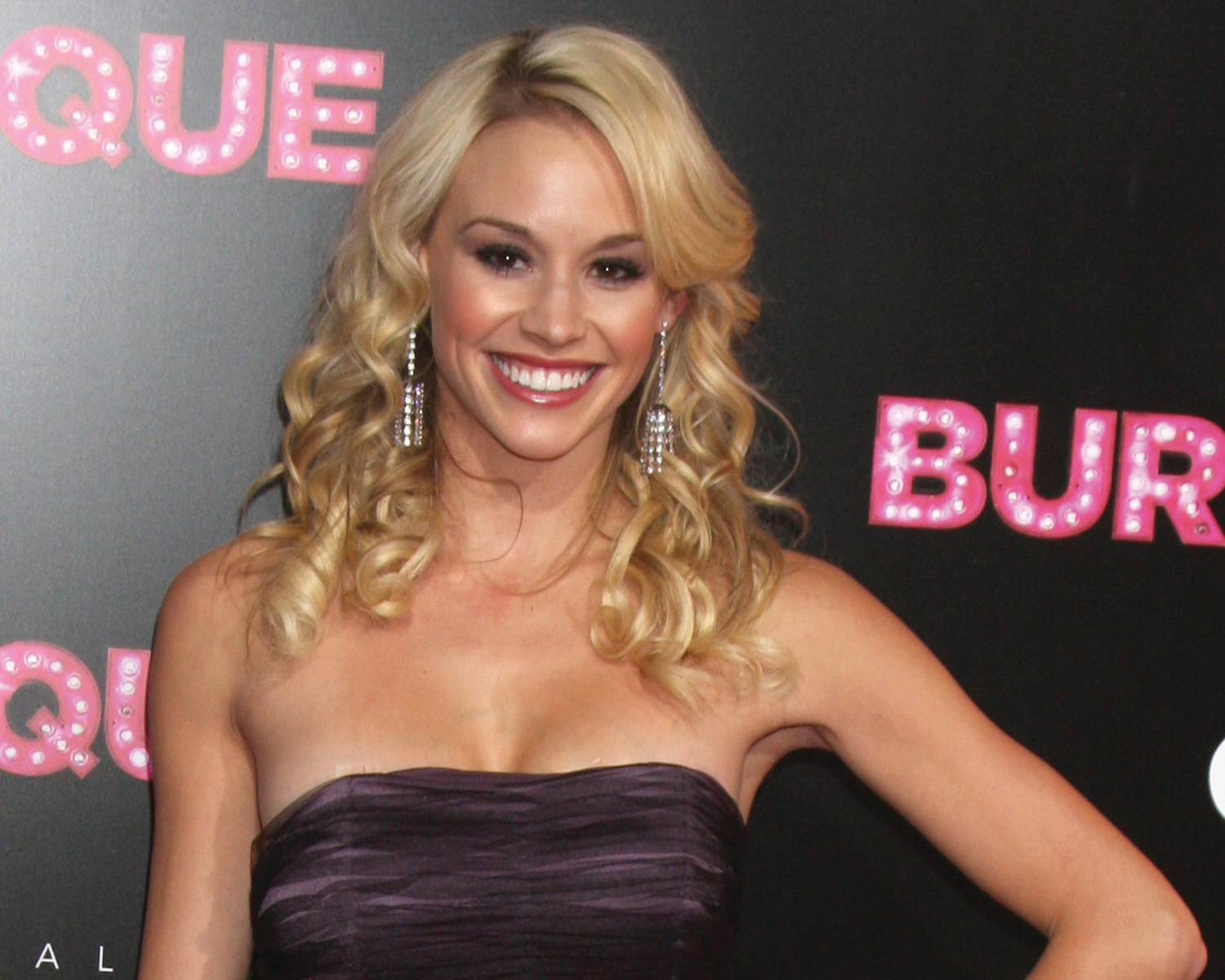
Engle, who is originally from Wisconsin, graduated from Milliken University with a BS in Music Business, before making the move to LA. He started at Kazarian/ Spencer & Associates in the LA Equity department. In 2005, Engle joined the Clear Talent Group team and has been the Director of CTG’s premiere Dance Department for the past six years. He is also an agent in the Creative & Development department that represents writers, directors, designers, and choreographers.
Corey Anderson is a professional dancer, based in LA, who has worked with recording artists such as Chayanne, Ricky Martin, Kelly Clarkson, Miley Cyrus, and Mariah Carey. He’s also been featured in many movies, videos, and commercials.
Even in high school, Tyne Stecklein had an impressive dance career—winning multiple national titles and touring with numerous productions. After high school, Tyne moved to L.A. to pursue a professional career in dance. Over the last few years, Tyne has worked on several TV shows, including “Body of Proof,” “True Blood,” “CSI,” and worked on movies as well, including Rock of Ages, Fame, 17 Again, The Campaign, and No Strings Attached. Corey and Tyne were both in Burlesque (2010) with Cher and Christina Aguilera.
In recalling his Show Choir days, Engle refers to himself as a “proud Dwight baby,” referencing the legendary Show Choir mentor Dwight Jordan. When Engle was at Milliken, he performed with “The Singing Blue,” which was founded by Jordan, and he worked with Jordan throughout college, as a counselor at Show Choir Campus of America in Milliken, Ohio, Orlando (Disney) and at Six Flags. Eventually, Engle decided to move to LA with a handful of other Milliken graduates. Unfortunately, the commercial strike turned what had been a paid job into an unpaid internship, so he had to turn to other work.
Flash forward four years, and Engle was working in graphic design for an LA firm. “It was fine…it was paying the bills,” Engle recalls, but he realized as thirty was fast approaching that he had a choice to make. “I was getting older,” he notes, and he had to make a decision to keep doing what was “okay” or doing what he “really wanted to do.”
Engle shares that he has always been a believer in doing what makes you happy. He knows the previous generation was focused on one thing in business: “You do what you do to make your family secure.” He believes we have the luxury today to “actually accomplish that (security) and be happy.”
Making the brave decision to take a 70% pay-cut, Engle started over as an assistant at Clear Talent Group. “I’ve always been a performer but with a business sense,” Engle shares, and he was also interested in the backend of music, the business side. He had questions about his role: “Did he want to do Broadway? Did he want to work as a performer in some way? Did he prefer the business route?”
As he was struggling with those questions at this crossroads, Engle was interning with a woman who was helping him learn the industry. Engle recalls the day she told him to follow her into her office and listen to a phone call she was about to make. “The Lion King” was opening on Broadway, and she was calling the performer who had landed the coveted role of Simba. As he listened to that call, Engle had an epiphany: He knew he wanted to make that call more than he wanted to get that call.
While Pete Engle was at Holmen, Corey Anderson was growing up in Onalaska—attending a rival Wisconsin high school. Engle teases that he didn’t know Corey but “he knew of me.” Then, a few years later, both young men ended up at Milliken in the same fraternity, where Engle became Anderson’s “big brother.” A few more years in the future, and Engle was serving as best man at Anderson’s marriage to Tyne Stecklein, who—by then—he represented. Engle joked in his toast, “I get 10% of everything they get at this wedding.”
Engle adds that Anderson is one of “his closest friends in the world.” However, because Anderson was already with an agency before Engle signed on with Clear Talent Group, Anderson stayed put for quite some time. “Corey is a very loyal person,” Engle adds, but he finally reminded Anderson of a simple fact: “As loyal as you are…I’m gonna be looking out for you every day.” There was no one else who would push harder to get Anderson the work he deserved than a talented and respected agent who also happened to be his best friend.
Eventually, after also becoming friends with Tyne, Engle started representing her as well. Tyne, who had been with the same agency since she was a child, had a similarly tough experience in switching agents, even when she knew a move was the best choice for her. She adds, “Even though you want it to be all business, you feel like you are almost breaking up.” She has had no shortage of work, since moving to Clear Talent Group. In addition to the fact she’s stunningly beautiful, Engle states, she’s also incredibly talented; in short, he notes, “Tyne is one of the top dancers in the country.”
A Love of Dance Leads to a Lifelong Partnership
Corey Anderson shares that in high school he was “majorly into sports” and “show choir was the thing all the guys did because the girls were in it.” He did have fun, he admits, especially when people started to notice his talent— for instance, when Rich Taylor from Disney contacted him about a job. He remembers thinking, “I must be pretty good at this.”
Even then, he wasn’t “into the Broadway thing,” though he was “very into the dancing.” He landed a job with Great America in Chicago just two days after graduating and thought, “This is better than landscaping.” Later, in college, he realized he enjoyed Music Theory and the commercial side of the music industry. Of course, the love of dancing was persevering. At that point, Dwight Jordan told Anderson to take Jazz and Ballet. He remembers his response was an emphatic, “FOR WHAT?!” When Jordan asked, “Do you like dancing?” Anderson half-jokingly responded, “Not like that!” However, as always, he followed Jordan’s advice and soon found himself “so juiced…so focused…so…passionate.”
Though Jordan was keeping him busy with camps and gigs, after Anderson’s junior year of college, Jordan told him, “Don’t come back here. Go check out LA.” Kye Brackett told Anderson about “The Edge” and Anderson was “so enamored he almost didn’t go back to school.” Anderson said that’s the first time he realized he really could make a living dancing. From that point on, Anderson notes he was “always in the dance studio,” teaching five classes a day and doing free pieces for choreographers to build his name. Then, to his delight, he booked a World Tour with Chayanne.
Interestingly, Tyne Stecklein had a brief (very brief) encounter with Chayanne as well. Despite her incredible re´sume´, amazing talent, and stunning beauty, Chayanne’s people decided to let her go after one week of rehearsals because, at 5’5″, she wasn’t considered tall enough to fit with Chayanne. When Anderson found out, he approached Stecklein and said simply, “Let’s go to lunch.” Luckily, Tyne had no time for disappointment, as she immediately booked the High School Musical Tour with Kenny Ortega.
To their mutual delight, they often have a chance to work together now. They have the added benefit, as a couple, of understanding the business; Stecklein explains that an outsider to this life and this career might be hard-pressed to sympathize with the unique demands placed on professional performers. Tyne says, “From a work aspect, it’s really nice to have someone who understands the lifestyle.” She adds that it’s difficult for someone who doesn’t work in the business to be supportive of 18 hour days or understand there are many days, sometimes many days in a row, where performers have no set time to wrap things up.
They also know that they work well together, offering balance— based on personality differences. For instance, Anderson notes in his choreography that he’s “always masculine,” meaning he might forget momentarily that he’s working on a girl’s routine. “I would not do a lot of chick moves,” he teases. However, Tyne chimes in that he can serve up some pretty feminine steps when he wants to, and he’s actually really good at it. In fact, one girl— after mimicking a “sassy section” Corey worked out to a Taylor Swift song—told her giggling friends, “I am SO getting a boyfriend after this week.”
Corey is organic, by his own description, but also “a little spacey…out in left field.” Tyne loves this facet of Anderson, but she considers herself more “logical and organized and conscious of time.” They are often purposely matched and get to dance together, which they both love. Tyne concludes, “We have totally different strengths.”
From Show Choir Kid to Professional Performer
When discussing show choir performers who want to become professionals in the business, Engle explains, “Show choir is a whole universe.” He notes, however, that show choir talent does tend to lean more towards singing and a Broadway focus, even though there are some great dancers in LA Show Choirs. “Sometimes I wish there was more dance training involved in show choir,” he explains, since students aren’t “really taking dance classes through the year.”
When those high school students want to compete at an LA level, they have had a lot of voice training, but very, very little (if any) actual dance training, as there is a clear distinction between learning choreography and receiving dance training. They have had music education, concert choir, voice lessons, and many other experiences to prepare them to compete vocally. However, when it comes to dancing, Engle notes, “They are competing with trained people.” This means they are “swallowed up” by the competition in LA.
Engle wonders why more schools don’t invite choreographers to visit—even if it’s just once a month—to give these talented students a chance to learn choreography that has “nothing to do with the show.” He notes that most show choirs offer a row or two of “great dancers,” and the rest are “filler.”
Engle suggests it’s a “no brainer” for more schools to implement a program that would help those dance-lovers have a chance to excel. “If they want to be a dancer, there’s a dance competition world full of training,” he adds. Show choir kids can move, but end up gravitating toward musical theatre.” Even these monthly opportunities at choreography that go beyond the show will help kids know “if they are dancers at heart,” and directors wouldn’t have to fly top LA choreographers out to their districts to make this work: they just have to bring in dancers.
Falling in Love With Show Choir
For Tyne Stecklein, though she had extensive experience with dance and performance, show choir was “totally new.” When she first accompanied Corey to a show choir camp, she remembers wondering, “What IS this world?” She came away with the impression that this was “the real live Glee” and she thought it was both sweet and endearing that the kids were “SO excited about it.”
Then, she went back to camp and had her own group. Suddenly, she realized just how very complicated this lively little world can be. She realized she was, for the first time, setting a number on risers, and there were “all these levels” to consider— in particular making “all these pictures at different levels.” Then, of course, there were other rules: There had to be time to breathe, and kids couldn’t ever turn away from the audience while singing, though there needed to be plenty of movement and action. Before her first teaching day, she shares that she was “super stressed” and couldn’t sleep at all.
Then, she met her kids. Now she says, “I totally understand the show choir bond.” The stresses didn’t immediately go away, but she started focusing on the kids and the relationship they were building. She concludes, “I just fell in love with the kids I worked with.”










